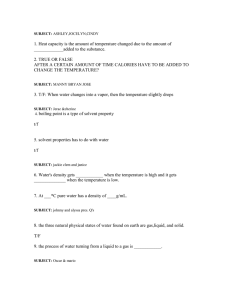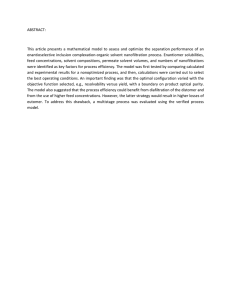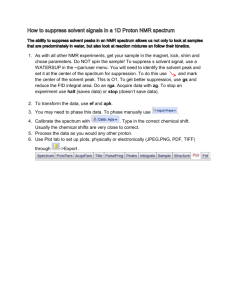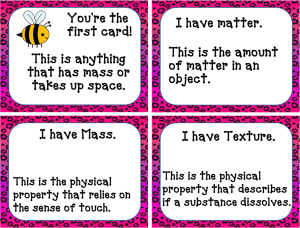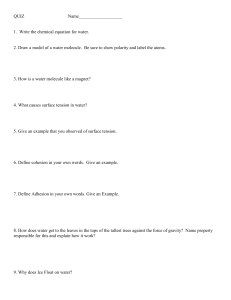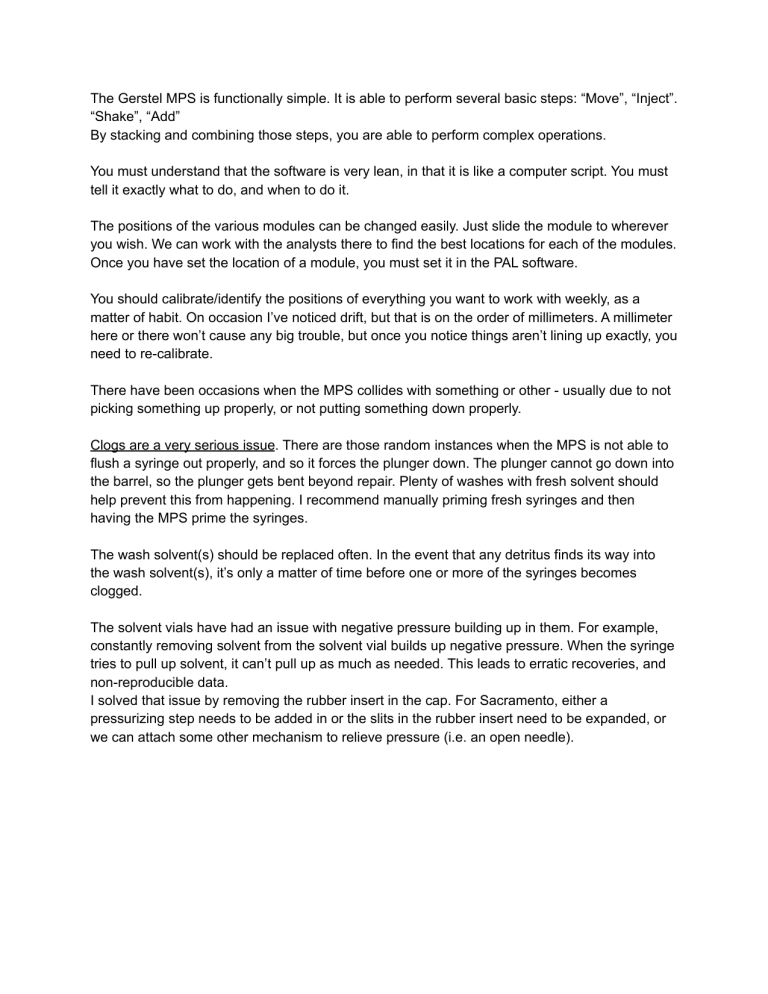
The Gerstel MPS is functionally simple. It is able to perform several basic steps: “Move”, “Inject”. “Shake”, “Add” By stacking and combining those steps, you are able to perform complex operations. You must understand that the software is very lean, in that it is like a computer script. You must tell it exactly what to do, and when to do it. The positions of the various modules can be changed easily. Just slide the module to wherever you wish. We can work with the analysts there to find the best locations for each of the modules. Once you have set the location of a module, you must set it in the PAL software. You should calibrate/identify the positions of everything you want to work with weekly, as a matter of habit. On occasion I’ve noticed drift, but that is on the order of millimeters. A millimeter here or there won’t cause any big trouble, but once you notice things aren’t lining up exactly, you need to re-calibrate. There have been occasions when the MPS collides with something or other - usually due to not picking something up properly, or not putting something down properly. Clogs are a very serious issue. There are those random instances when the MPS is not able to flush a syringe out properly, and so it forces the plunger down. The plunger cannot go down into the barrel, so the plunger gets bent beyond repair. Plenty of washes with fresh solvent should help prevent this from happening. I recommend manually priming fresh syringes and then having the MPS prime the syringes. The wash solvent(s) should be replaced often. In the event that any detritus finds its way into the wash solvent(s), it’s only a matter of time before one or more of the syringes becomes clogged. The solvent vials have had an issue with negative pressure building up in them. For example, constantly removing solvent from the solvent vial builds up negative pressure. When the syringe tries to pull up solvent, it can’t pull up as much as needed. This leads to erratic recoveries, and non-reproducible data. I solved that issue by removing the rubber insert in the cap. For Sacramento, either a pressurizing step needs to be added in or the slits in the rubber insert need to be expanded, or we can attach some other mechanism to relieve pressure (i.e. an open needle).
